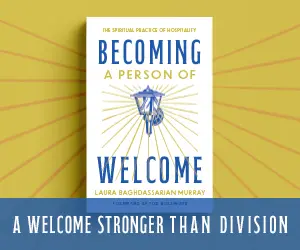[easyazon_image add_to_cart=”default” align=”left” asin=”0674049187″ cloaking=”default” height=”160″ localization=”default” locale=”US” nofollow=”default” new_window=”default” src=”http://ecx.images-amazon.com/images/I/51WZUe4aWrL._SL160_.jpg” tag=”douloschristo-20″ width=”107″]Page 2: Umberto Eco – From the Tree to the Labyrinth
The ancient Roman author Pliny the Elder is responsible for creating the first encyclopedia, the Naturalis Historia, which in some sense has served as the model for every encyclopedia since then. The goal of an encyclopedia is ambitious, to say, the least: It must create a record of all of human knowledge, and, in a Borgesian twist, must turn away, in some sense, from what is real and also register what might be real, or at least what people believe to be real. Ancient encyclopedias made much less of a division between the real and the merely believed, but even modern encyclopedias will include entries on basilisks and so forth.
What interests Eco in encyclopedias of all sorts is their organizational structure, which must mirror the organization structure of human knowledge itself. We look at a medieval encyclopedia—most of us will have to take his word on this point—and see something approaching chaos, and yet “medieval readers must have perceived an order where we see only an accumulation of information,” an order that helped them make sense of the information.
Eventually the dominant organization of the encyclopedia—and thus of human knowledge itself—becomes a labyrinth, as opposed to a knowledge tree. This is to say that it is no longer “ordered according to clear binary disjunctions.” Once inside it, you can go any way you’d like. This looks like chaos, perhaps, to someone who’s used to a simpler structure, but it’s still a coherent order, albeit one built on “the complete and radical refusal of any preestablished hierarchy among beings.” Human knowledge becomes a garden of forking paths, as anyone who’s spent an afternoon clicking through Wikipedia is well aware.
Other essays in the volume sound variations on this note. The infinite forkability of human knowledge makes the sort of ideal languages discussed in “The Language of the Austral Land” and “The Linguistics of Joseph de Maistre” impossible. But it makes possible the creative and destructive power of the metaphor, as discussed above, and it makes semiotics in some sense The Queen of the Sciences, since knowledge is grounded in language, and language itself is composed of forks, traces, and repetitions.
Ultimately, Umberto Eco’s From the Tree to the Labyrinth will be of most interest to specialists in the Medieval Period and in semiotics, who will have far more accurate guideposts along the way than will the lay reader—but all readers who are interested in intellectual history and specifically in the history of interpretation will find something here to send them into labyrinths of their own.
C. Christopher Smith is the founding editor of The Englewood Review of Books. He is also author of a number of books, including most recently How the Body of Christ Talks: Recovering the Practice of Conversation in the Church (Brazos Press, 2019). Connect with him online at: C-Christopher-Smith.com
 Reading for the Common Good From ERB Editor Christopher Smith "This book will inspire, motivate and challenge anyone who cares a whit about the written word, the world of ideas, the shape of our communities and the life of the church." -Karen Swallow Prior Enter your email below to sign up for our weekly newsletter & download your FREE copy of this ebook! |
 Understanding Christian Nationalism [A Reading Guide]
Understanding Christian Nationalism [A Reading Guide] |
 Most Anticipated Books of the Fall for Christian Readers! Most Anticipated Books of the Fall for Christian Readers!
|
 Hilarious One-Star Customer Reviews of Bibles Hilarious One-Star Customer Reviews of Bibles |



![Tom Holland - Pax [Feature Review] Pax](https://englewoodreview.org/wp-content/uploads/2023/12/Pax.jpeg)
![Jonathan Eig - King [Feature Review] King](https://englewoodreview.org/wp-content/uploads/2023/06/King.jpeg)


















